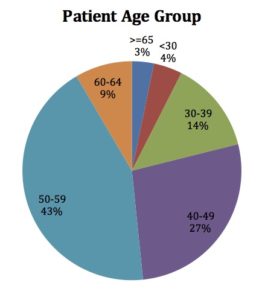
Marcus Gagnon, Benefits and Wellness Manager, Ashley Furniture Industries, Inc.

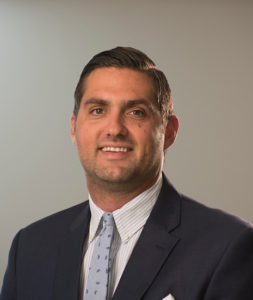
Marcus Gagnon has over 7 years of progressive Human Resources experience. Overseeing all benefit plan design and coordination of benefits for over 16,000 employees across the United States. His responsibilities also include management of 2 onsite employee clinics, all wellness programs as well as all cafeteria and vending. He also introduced a staff satisfaction survey too to ensure staff feel comfortable in their workplace.
He has presented to multiple groups on a wide variety of subjects and has been a leader in both wellness and benefits.
Prior to joining Ashley Furniture, he worked as the Wellness Coordinator for Trek Bicycle Corporation. In this role, he oversaw all wellness functions for all employees including a 4,000-square foot fitness center, exercise and educational programs and an onsite clinic.
Gagnon is a certified personal trainer and earned a bachelor’s degree in biology from the University of Wisconsin-River Falls.
About Ashley Furniture Industries, Inc.
Ashley Furniture Industries, Inc. (Ashley) feels that every person deserves more value for their money. Established in 1945, Ashley is one of the largest manufacturers of home furnishings in the world. From design through fulfillment, Ashley is committed to delivering the world’s best home furnishing values, selection and service, and earning the loyalty and trust of its customers every day.
_______________________________

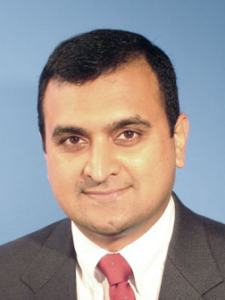
About Rajesh Rao, CEO and Co-Founder, IndUShealth
With over 25 years of experience in the creation and growth of successful entrepreneurial businesses, Mr. Rao provides IndUShealth a critical combination of operational, financial, and systems management skills.
He previously held technical leadership and executive management roles in enterprise software technology companies, including IBM, Post Software International (acquired by Fujitsu/ICL), and Empower/MindLever (acquired by Centra Software).
Mr. Rao has been instrumental in building IndUShealth into a dominant solution provider that has helped elevate the medical travel trend to a new level, with customized solutions specifically tailored to address the unique needs of the US corporate group health market.
Mr. Rao is recognized as an industry leader and is often asked to speak to audiences at meetings and conferences. He has been featured in several news articles, as well as in TV and radio interviews. In June 2006, Mr. Rao appeared as an expert witness before the US Senate Subcommittee on Aging, extolling the advantages of employer-assisted medical travel, and sparking a national debate over insurers’ and corporations’ roles in medical tourism. He was also invited to speak at a National Academies seminar that explored the potential role of medical tourism in providing safe, affordable care to Americans.
About IndUShealth
IndUShealth is a global healthcare benefit management service that links American employers and individuals to affordable, high-quality medical care in Costa Rica, the Cayman Islands, and Mexico. Its programs provide a comprehensive set of turn-key services to group health benefit plans, including counseling, evaluation, logistics, electronic medical records, billing and travel coordination. For more information, visit http://www.indushealth.com
_______________________________
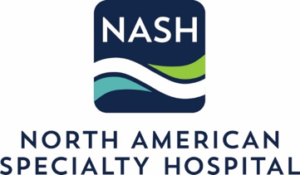
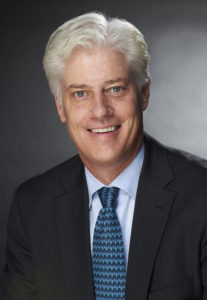
About Jim Polsfut, CEO, Chairman, and Co-Founder, NASH
James Polsfut has served as CEO, Chairman, and Co-Founder of the North American Specialty Hospital since 2012. NASH deploys the productive engine of NAFTA in a collaboration focused on healthcare between the United States and Mexico. Seeking in particular to benefit U.S. patients and their employers with a focus on value, NASH serves as a Center of Excellence in the Delivery of Healthcare located in Cancun, a destination city with one of the most direct, non-stop airline connections in North America.
Earlier in his career, Mr. Polsfut was CEO of the U.S./Mexico Foundation, President of The Americas Roundtable of the Biennial of the Americas, and a general manager of GE Capital in Mexico City. In addition, he served as a founding officer of First Western Trust Bank, a private bank and trust company headquartered in Denver, Colorado, where he oversaw corporate acquisitions aggregating to more than $2 billion during his tenure. He also served as Administrative Assistant for Finance in the Office of the Mayor of Denver and as an associate in public finance at Smith Barney.
As a complement to his professional work, Mr. Polsfut has filled a variety of community leadership positions. Currently, he serves as Chairman of the advisory board of the University of Denver Josef Korbel School of International Studies (the Social Science Foundation) and as Executive Director of the Uberoi Foundation for Religious Studies. In addition, he serves as member of the board of the IPODERAC Orphanage located in Puebla, Mexico, and as a member of the board of the U.S./Mexico Foundation.
Mr. Polsfut earned a Bachelor’s Degree in government from Harvard University and an MBA from Stanford University.
About North American Specialty Hospital
Headquartered in Denver, NASH is a US majority-owned and managed enterprise. Incorporating US physicians in its service delivery, NASH is designed to provide pre-operative and post-operative services throughout the US, while providing clinical care in Cancun. http://northamericanspecialtyhospital.com/
_______________________________
Medical Travel Today (MTT): What prompted Ashley Furniture to explore and adopt a medical travel program?
Marcus Gagnon (MG): There are a multitude of factors. Most importantly, I think we want to be able to serve our employees the best way we can and make sure we can still offer affordable healthcare coverage.
It is getting harder and harder to do this in the U.S., so we want to identify every opportunity to best serve our population. This is just an extension of that thought process, and reflects our thinking for any other benefit that we offer.
This is really about helping to help serve our population to the best of our abilities.
MTT: And when did you first start this program?
MG: We first became involved with medical tourism in 2015.
MTT: Would you say it was a slow start? How did you let your employees know that you were even doing this?
MG: We rolled out communications internally, whether it was videos, in-house publications and other opportunities to deliver the message.
While this has been a slow building program, it is gathering momentum. Obviously, the introduction and partnership with IndUShealth has helped to promote the concept. They have been a very good partner with us, but it is a program that people need to get comfortable with because it is something new.
Over time, the program has grown and evolved, and now we have a lot more feedback from employees. We also have more testimonials from those who have traveled for treatment and were very satisfied with the experience.
Now, people in the organization can see and hear about the successful experiences of co-workers. This has reduced reluctance and reticence to take part in the program. Objections have virtually “melted away” — more and more people are definitely looking into and starting to use the program vs. a few years ago.
Raj Rao (RR): One of the things that we also see is that often the practitioners and nurse-practitioners that help these patients are associated with the worksite clinic at Ashley.
It does take them time to get comfortable with the program because initially everyone is skeptical.
They often ask: “What does it mean for someone to get a surgery overseas?” “How can that be safe?”
It is not until they see patients come back and respond really well to their treatment and see how well they really do, that they begin to buy to the concept. That’s when they start to see individuals walk up to the nurse and say that they are considering doing this — and is it even possible?
Once they’ve had experience with the program and know that the patient has a good outcome, the seal of approval follows.
And physical therapists play an active role, too. I mention this because we get feedback that in many of these travel cases, the healing often happens faster.
MTT: What kind of procedures are you offering? Is there a whole list or is it certain surgeries?
MG: It is currently only certain surgeries. The list of procedures that Ashley Furniture Industries currently covers under our Global Healthcare Option includes:
ORTHOPEDIC
- Knee Replacement
- Knee Arthroscopy
- Hip Replacement
- Hip Resurfacing
- Shoulder Replacement
- Rotator Cuff Repair
NEUROSURGERY
- Spinal Fusion/Decompression
- Discectomy/Laminectomy
- Laminotomy/Foraminotomy
- Cervical Disc Replacement
BARIATRIC
- Gastric Bypass
- Gastric Sleeve
OTHER
- Hysterectomy
MTT: So tell us about the employees that are typically interested. Is it mostly men? Women? Younger? Older? And in what job descriptions?
MG: That’s a good question because we do open it up to spouses of members that are on the health plan. Access to the program and utilization is pretty scattered across the board.
RR: In general, that is true. But there’s a wide spectrum of age ranges.
We see fairly young folks in their 30’s and 40’s as well as folks that are in their 50’s and 60’s — so there’s a pretty good spread. I can’t say that there’s a particular age that is more receptive.
| Average age | 47.8 |
| Median age | 48.8 |
| Std. deviation | 10.8 |
| Minimum age | 24.5 |
| Maximum age | 65.1 |
| Male | 46% |
| Female | 54% |
| Avg. age (male) | 50.5 |
| Avg. age (female) | 43.4 |
MG: Yes, I think it is a very good cross-section of our organization that is using the program. It’s not just one location or just one type of employee.
I would say we are reaching most employees.
MTT: Maybe the materials need to be translated?
MG: We do translate.
MTT: So that is an interesting challenge.
MG: We would think that it would be a natural fit especially since a lot of our locations are in Spanish speaking countries. But we don’t see uptake thus far.
MTT: As a self-insured company, does this work as a carve-out program? Is it in any way coordinated with the health plan?
MG: It’s a carve-out program working directly with IndUShealth.
MTT: So, the claims and everything are handled separately?
MG: Correct.
MTT: Can you walk us through the process? Say I’m an employee of Ashley Furniture, I hear about this over the water cooler and I’m interested in pursuing this option. What is my first step?
MG: Often times, employees hear about it from another co-worker and then reach out to the benefit department. We will then get them to the first step which is to reach out to IndUShealth and inquire about whatever you may be interested in. Then I’ll let IndUShealth take it from there.
MTT: And from the patients that have gone, what is their feedback?
MG: Overwhelmingly positive.
So much so that most of them are generally willing to give some sort of testimonial.
Not everybody wants to be videotaped, but they will usually respond and that’s not just anecdotal because we’ve had 50+ participants and many go back for a second surgery. Obviously, they must have been happy with the results or they wouldn’t go back.
MTT: Does it look like the program is building? Can you tell us where these patients go? What do they prefer about one place over another? And just generally, what are the destinations?
MG: Currently the majority of our patients go to one of two places – Costa Rica or Mexico. That is the bulk of where we are currently sending our patients.
RR: We have also sent some patients to the Cayman Islands but the option of Mexico started toward the beginning of this year, and a few from Ashley Furniture then began using that destination. That’s how the process usually starts — with people becoming familiar with it.
People start to talk about it by hearing from others who are coming back with stories that they share with their co-workers. We are bound to see a steadier rate of people choosing Cancun for orthopedics, but for now if they want other types of surgeries, they’ll have to choose another destination.
MTT: Typically what are savings to the employee and the employer? Is it a percentage? Do you find you’re lowering your cost? Do the employees save anything? Is there a co-pay that the employee has to pay or a deductible when they opt for this program?
MG: The savings to the employee are quite significant, but we have four different health plans so it would depend upon a multitude of factors: what plan you’re on, how many other expenses you had through the year, if you’re hitting copays and out of pocket maxes and other considerations. There is an infinite amount of possibilities.
In general, all of our health plan members can realize a cost savings by using this program. We currently waive all copays and expenses if they choose this program as well as a reward for going.
As for Ashley, the cost is generally about half of what you would pay for similar surgeries conducted here in the U.S.
RR: Yes, I would say that is accurate and spot on. Obviously, there are some surgeries that offer more savings than others but overall, it is about half.
MTT: Let’s pivot a minute and get your feedback about the NASH Cancun model in particular vs. any other model. Do you see any value in having US surgeons involved?
NOTE: Incorporating US physicians in its service delivery, NASH is designed to provide pre-operative and post-operative services throughout the US, while providing clinical care in Cancun. http://northamericanspecialtyhospital.com/
MG: Yes and no. I think there’s value in having US surgeons, especially if this is a new program trying to get the buy-in from the employees. As I said, people are skeptical at first.
Sometime, people are scared in not knowing what type of care they are going to get because we believe the US is the best. So, if they want to go to Costa Rica, they are wondering about the quality of care.
But if you go to Mexico and the doctors are all US doctors I think you’d be more comfortable with that option vs. a foreign doctor in Costa Rica or elsewhere whose primary language isn’t English.
So yes, I think there is a could be an advantage to a model like Cancun with US physicians.
Part two of this interview can be found in our November issue here.
